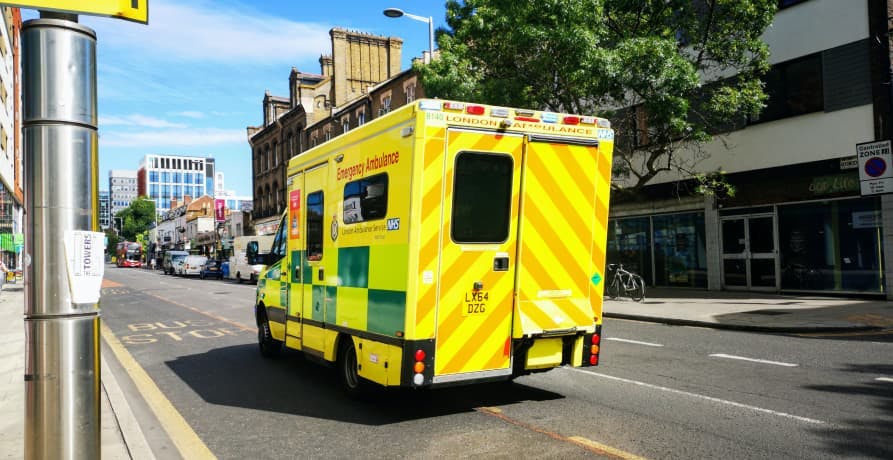
Impacts, Risks, and Opportunities (IRO) for CSRD Reporting
In this article, we’ll break down what IROs are, how to identify and assess them, and what CSRD requires in terms of disclosure.
ESG / CSR
Industries



The National Health Service (NHS) is embarking on a journey towards sustainability, establishing stringent environmental and emissions objectives that apply not only internally, but also to NHS suppliers. Over the next decade, these green initiatives will progressively strengthen, requiring suppliers aspiring to secure NHS contracts, to align with their environmental goals.
To aid this transition, the NHS has introduced the NHS Evergreen Sustainability Assessment tool, designed to help suppliers understand their sustainability standing and forge a path toward alignment with the NHS's own ambitions.
👉 In this article we’ll provide an overview of the NHS Evergreen Sustainable Supplier Assessment tool, and how the tool can benefit NHS suppliers.
The Evergreen Sustainable Supplier Assessment serves as an online tool that enables suppliers to actively participate in the NHS's sustainability journey. It allows them to align with the NHS net zero and sustainability ambitions, as outlined in the NHS net zero supplier roadmap.
Evergreen is a comprehensive self-assessment and reporting tool designed for suppliers to share their sustainability information with the NHS. It establishes a streamlined channel for the exchange of information and data between suppliers and the NHS.
Upon completing the assessment, suppliers will receive a sustainability maturity score based on NHS priorities. This score indicates their current position and provides a pathway for progress.
👉 It's important to note that the assessment itself is not currently intended to be scored or evaluated as a requirement in the NHS procurement processes.

The NHS Evergreen Sustainable Supplier Assessment forms an essential part of the NHS’s net zero journey.
The NHS has set a goal to achieve net zero emissions by 2040 for the emissions they directly control, and by 2045 for the emissions that they influence through the purchase of goods and services from partners and suppliers. To reach this target, they are seeking the cooperation of their suppliers.
In September 2021, one year after the release of the Delivering a net zero NHS report, the NHS England Public Board approved a roadmap to assist suppliers in aligning with their net-zero ambition. This roadmap builds upon the UK Government's procurement policy (PPN 06/20 and PPN 06/21).
👉 To find out more about Procurement Policy Note (PPN) 06/20, why not read our article which outlines how social value considerations are incorporated into UK Government contracts.
👉 You can also learn more about PPN 06/21, and how it aims to ensure that suppliers reduce their environmental impact, by reading our article on the topic.

👉 Calculating and reducing your carbon emissions can seem like a complex and time consuming process. So why not lighten the workload by enlisting the help of a carbon accounting company like Greenly? At Greenly our climate experts and industry leading technology make calculating your carbon footprint easy.
The assessment is open to any supplier that currently provides, or intends to provide, goods or services to NHS England, integrated care boards, or an NHS trust in England. Additionally, the Department for Health and Social Care and NHS systems in Northern Ireland, Scotland, and Wales can access the information and data as well.
The assessment is hosted on Atamis, the health family e-commerce procurement system, and suppliers must register with Atamis to gain access.
It is recommended that suppliers complete the assessment annually, with the maturity score remaining valid for 12 months. However, suppliers can update their annual assessment with significant updates at any point throughout the year, as necessary.
Suppliers should initiate internal discussions to determine how their organisation will manage and coordinate the completion of the Evergreen Assessment within the Atamis system.
The internal commercial bid team confirms that the completion of the Evergreen Assessment will be centrally managed through the existing organisational Atamis user account.
The internal commercial bid team confirms that an additional organisational employee will handle the completion of the Evergreen Assessment through Atamis.
The internal commercial bid team confirms that the organisation is not yet registered on Atamis.
Suppliers will undergo an assessment based on four maturity levels, reflecting their alignment with NHS sustainability priorities.
The maturity criteria draw from prominent independent sustainability initiatives such as the science-based targets initiative (SBTi) and the modern slavery assessment tool (MSAT). Additionally, the criteria consider NHS sustainability requirements, including those outlined in the Net Zero supplier roadmap.
Let’s take a closer look at the different supplier maturity levels:
Suppliers have publicly committed to achieving net zero carbon emissions and actively engage with sustainability practices.
Suppliers have comprehensive net zero targets and reporting mechanisms for carbon emissions. They adopt a structured approach to addressing modern slavery and driving social value.
Suppliers have independently validated net zero targets for the year 2045 and have completed the modern slavery assessment tool.
Suppliers have independently validated net zero targets for the year 2045 across their global organisation. They actively map the supply chain or investigate and mitigate supplier risks related to modern slavery.


👉 The supply chain of the NHS accounts for more than 60% of its total carbon footprint. A significant portion of these Scope 3 emissions are generated within the UK, with nearly half emanating from the manufacturing and delivery of medical equipment, and the production of medicines and chemicals.
Given the substantial contribution of the NHS supply chain to overall greenhouse gas (GHG) emissions, it's evident that NHS suppliers must undertake major reductions in their carbon emissions. This is crucial for enabling the collective NHS network to achieve the NHS’s net-zero target by 2045.
The NHS Evergreen Sustainable Supplier Assessment aims to facilitate this by:

Many NHS suppliers might not yet fully comprehend the extent to which the NHS's pledge towards net zero will affect their competitiveness in UK tenders. The NHS has already begun modifying its procurement regulations to emphasise sustainability, and it's crucial for suppliers to contemplate the potential implications of these alterations on their future operations.
Currently, a pledge toward sustainability serves as a unique selling proposition for many suppliers. However, a supplier's proven sustainability performance will transform into a critical factor in the NHS's selection process, and by 2030, the absence of demonstrable, reported decreases in GHG emissions may disqualify suppliers from successful dealings with the NHS entirely.
This is why it's crucial for NHS suppliers, or those who wish to compete for an NHS tender, to engage with the NHS Evergreen Sustainable Supplier Assessment tool. This tool is an invaluable resource that helps to ensure that suppliers are aligned with the NHS sustainability journey. Companies who take the time and effort to engage with the tool now and to align themselves with the NHS sustainability ambitions will be well placed to succeed in future NHS supplier tenders.
At Greenly we can help you to assess your company’s carbon footprint, and then give you the tools you need to cut down on emissions. Why not request a free demo with one of our experts - no obligation or commitment required.
If reading this article has inspired you to consider your company’s own carbon footprint, Greenly can help. Learn more about Greenly’s carbon management platform here.